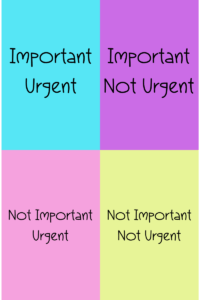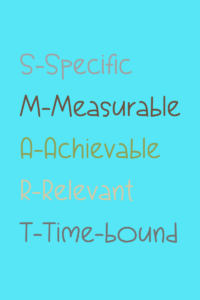This post may contain affiliate links, which means we may receive a commission, at no extra cost to you, if you make a purchase through a link. Please see our full disclosure on the Affiliate Disclosure Page.
Time management is a struggle for many of us. As busy Christian moms, we have so many things going on all the time that we have to take care of. We have Bible study, meal planning, family care, school (or homeschool) prep, and so many other things on our lists.
How do we get all of it done?
We accomplish all of it through time management. Keep reading because I’m going to share a few tips and tricks that will help you today.
Unique Role of Christian Moms
Motherhood is a unique role in itself. However, when we add in our faith, it becomes a little more unique. There are things that we do as Christian moms that non-Christians don’t necessarily do.
We have prayer time for ourselves and with our family/children. Bible study time is essential, as well.
Our responsibilities are not only to our family. We have roles in our churches and in the community, too. You may be a Sunday School teacher or a Children’s church worker. Are you on the worship team? There was a time when I was all three of those at the same time. The Sundays when I acted in all of those roles were completely exhausting and fulfilling.
No matter what roles you have in your church and community, the most important one you have is as a mother. So we have to figure out how to do it all, and do it well. To accomplish this, we have to have effective time management. (Trust me. I’m “preaching to the choir” on this one.)
Current Time Management Strategy
What is your current time management strategy?
I’m working to make mine better. Over the past couple of weeks, I have gotten more diligent about writing and following a list. Don’t get me wrong; my list is still more than I could ever complete in a day, but I have a list. Most days, I am marking off at least a few of the items.
My previous strategy was more of a “fly by the seat of my pants” situation. In the mornings, I would write down a couple of things I wanted to do. Then I would immediately get distracted and not do them.
Evaluate Your Time Management
If you are reading this, you are probably wanting help with time management. Right? In order to get better at it, we have to see where we are starting.
Take a minute or two (yes, set a timer), and write down what you think your time management strategy is right now.
Write down what is working and what isn’t.
If you don’t have a time management strategy at the moment, then you don’t need to set the timer.
Your Time and Values
Now that you have written down your current time management strategy (or lack thereof, if you are like I was), we have a starting place.
As we move forward with developing a time management strategy, you need to think about all the things you have to do.
List of Values and Priorities
You’re going to need that timer again. Set it for 5 minutes. It doesn’t seem like long, but it will help you stay focused. Your brain will try to get the task completed before the timer stops.
Make a list of all the things that you have to do. These can be things that you do daily, monthly, weekly, or just once.
List them all. The order doesn’t matter. I will tell you how to sort them out in just a minute.
How to Sort the List
 On a different paper, because you need to be able to see the list (without flipping the paper over again and again), draw a box and divide it into 4 equal boxes. (It should look like a window pane.)
On a different paper, because you need to be able to see the list (without flipping the paper over again and again), draw a box and divide it into 4 equal boxes. (It should look like a window pane.)
Label the top left window: Important and Urgent
Label the top right window: Important and Not Urgent
Label the bottom left window: Urgent and Not Important
Label the bottom right window: Not Urgent and Not Important
Urgency and Importance
Urgency is determined by a timeline. Do you have a deadline for work? Is there a due date for the paper you are writing? What is the date/deadline?
Importance is somewhat personal. I might think that grocery shopping is important because we haven’t been in 3 weeks. You may have gone last week, and it’s not important for you right now.
Separating the List
On a 3rd piece of paper, make 2 columns: Urgent and Not Urgent.
Do you see where I’m going here? In the Urgent column write all the things from the first list that have dates or deadlines attached. In the Not Urgent column write all the other tasks.
Below that (or on a different paper), do the same with Important and Not Important.
Examine these lists.
Go back to the “window pane.” Write the things in the Important/Urgent box that are in both of those columns. Mark them off as you write them so that you can see what you still need to write in the “window pane.”
Once you are finished, take a deep breath. You have taken a big step toward your time management strategy.
Realistic Goals
We tell our children all the time that they need goals. Do we practice this for ourselves?
Most of the time, the answer is NO. We don’t “practice what we preach.”
In order to have effective time management, you need to set specific goals, but they need to be realistic. You’ve heard of SMART goals, right?
SMART Goals
 S-Specific
S-Specific
M-Measurable
A-Achievable
R-Relevant
T-Time-bound
Our time management goals need to fit this formula as well.
When we set goals for the day/week/month/year, we need to make them specific so that we know exactly what is expected. Measurable means that we can tell that something is being done toward the goal.
Achievable is different for everyone. I can set a goal to run a 5K in less than an hour, but the likelihood of that (considering I don’t run and have knee issues) isn’t achievable. Instead, I could say I want to walk a mile in less than 30 minutes.
I could say I want to write 8 blog posts a day, but unless I’m willing to write all day and not accomplish anything else, it’s not achievable.
For your time management goals, you need to be sure you aren’t shooting too high, but aim high enough that it’s a stretch.
Relevant means that it has something to do with the tasks on your list. If you put doing laundry on the list, but your goal is to watch all the seasons of ER, those don’t match. Right?
Time-bound means that you have a deadline. Whether your task is urgent (has a deadline of its own) or not, your goals should have a timeline so that you get them done.
Pieces of Goals
Once you have written down the big goals, you need to break them down so that you can accomplish them.
Let’s use grocery shopping. If you have an hour to shop, and you are going on Wednesday afternoon, you need to prepare before that.
On Monday, you can look through the fridge, freezer, and pantry. What do you need to put on the list?
On Tuesday, you can plan your meals for the week/month (however long you shop for). Add any items from that to your list as well.
On Wednesday, you can check your list. Ask your family members if there is anything specific they want added to the list. Go shopping.
This is a simple example (and one you can probably do all in one day) but you can use it as a model for how to break down your goals so that you have smaller goals to accomplish on the way.
Daily and Weekly Schedule
My best advice for planning a schedule is to get a planner.
Once you have a planner, write in all the appointments you have. I suggest doing this in pencil because we all know that things change. I personally do not like for my planner to have markouts, so I only write in pencil.
Once you have all your appointments on the calendar, add in the deadlines for the Urgent things (even the Urgent and Not Important ones).
Weekly Plans
After adding all of the Urgent things to your schedule, you can begin adding in the important things that aren’t urgent. What is something you need to get done, but it doesn’t have a deadline? Put a few of those on the weekly plan.
If you don’t have anything with deadlines for the week, you can add more Important/Not Urgent things. The more Urgent things you have, the fewer Not Urgent things you can do.
Daily Plans
Now, it’s time to make a daily To-Do list. The best thing to do is to make this before you go to bed at night for the following day. It will allow your brain to relax a little more because you know the plan for the following day.
Make this part of your evening routine.
Every morning, wake up and check the list. If you need to change things around because of notifications on your phone or a call from a friend or family member who needs your time, change it. This will become an important part of your morning routine.
Procrastination and Distractions
I am an Olympic-level procrastinator. Recently, I have been researching ADHD a little more, and I’ve found that it’s not always procrastination. Typically, it’s a lack of executive functioning. I’m learning to work through that, and working on time management is helping with that for me.
Timers
To avoid procrastination and distractions, I use timers. Did you see how I did that with you earlier? It works with my students when I’m teaching too.
A timer tricks your brain into focusing so that you can get the task completed. Are there times that I have to reset the timer? Yes. Do I ever finish before the timer? Yes. Do I want to stop using timers because they always scare me when they alarm? Yes.
Right now, as I’m writing this post, I have given myself an hour to finish writing, editing, and getting the graphics done. Will I finish in an hour? Probably not, but I will work with more focus and won’t get as distracted because I know that I have a time limit to get this done.
Try it for yourself. It may take some getting used to, but it will help you to focus on the task at hand. If you have something that you do often, figure out the least amount of time you could complete it in. Set the timer for that.
Timers are great tools for time management.
Distractions
Everyone has different distractions. As moms, we have children. Mine is almost 20, but she does come into the office from time-to-time during the day.
If your children are younger, they can be very distracting. (I’m not saying it’s a bad thing.)
We have to have ways to avoid or lessen the distractions we face when we are trying to focus.
Go into a quiet room, like an office, so that you can work on your tasks. I like to put in my earbuds and listen to music while I work. This helps me to block out the other noises in the house.
I typically flip my phone over on the desk so that I don’t see the notifications as they come in. However, if you are using your phone to work, you can disable all the notifications in order to be able to work without interruptions.
Figure out what your distractions are. Come up with a way to lessen them.
If your children are distracting you, can you work during their naptime? Is it possible to let them go to Grandma’s house for a couple of hours a week so that you can get some work done? Is a part-time daycare a possibility for you?
Part of good time management is reducing or deleting distractions.
Delegation and Support
Whether you are a stay-at-home mom, work-from-home mom, or a work-in-the-office mom, you need to delegate some things to other people.
Ask your family for support in your goals. Your husband may be willing to give the kids a bath at night so that you can get something done during that time.
Can you ask your mom to cook dinner? Take her the ingredients, enough for her house too, and go by to pick it up on the way home. There are plenty of times that my mom has done this for me.
What to Delegate
When you are trying to decide what to delegate, it is probably not going to be something in the Urgent/Important window. You will most likely have to take care of those yourself.
Is there something in the Urgent/Not Important box that you don’t want to do, but it has to be done? Is there someone in your life who could do that for you? Can you pay them to do it? Is this something that the person would be good at?
Don’t just delegate a task because you don’t want to do it.
Some things that you could possibly delegate are household chores. Depending on how old your children are, they could help (without much supervision from you).
Sometimes delegating means paying. Hire someone to come clean weekly. Use a meal delivery service for your foods. Have your groceries delivered to the house instead of going to get them.
How to Delegate
Don’t assume that someone will do something for you. Ask the person politely to help you with the task. Most people, I think, if asked correctly are willing to help if they can.
Boundaries
 This one is still hard for me. I’m sure, if you’re honest, this is (or was) hard for you, too.
This one is still hard for me. I’m sure, if you’re honest, this is (or was) hard for you, too.
Boundaries are how we protect ourselves from overcommitting, overworking, and becoming overly tired.
When someone calls last minute to see if you can do something, you do not have to change your plans to do it. You are allowed to say NO, even if the plans are for a week or two away. Check your schedule to see if it is going to overcommit you for that time. If it is going to stretch you beyond what you are comfortable with, say NO.
It’s ok, and the other person may respect that you are trying to take care of yourself and your family first.
How to Set Boundaries
In August, I will be teaching online again. Our daughter is going back to a local college. Right now, we only have one vehicle (not counting my husband’s work vehicle from his job). That means that my minivan will be taking care of appointments for family members, getting my daughter to class, and anything else.
I already know my teaching schedule and my daughter’s class schedule for the fall. I created a color-coded schedule. My mom, my daughter, and I all have copies.
On Mondays, I’m teaching. No other appointments will be made that day. Tuesday through Thursday, my daughter has class. I can do things before and after I drop her off/pick her up on those days. Fridays are open, but I need to keep time open to spend with my nephew that day; we have “Auntie Appointments” on Fridays. (I go over and hang out with him and my sister and we play.)
If someone, even people with the schedule, need me during my “not available” times beginning in August, the answer is NO.
Be firm with your boundaries. Don’t let someone “puppy dog eye” you into doing something when it will push you too far or stretch you too much.
Spiritual Growth
One thing that we have to include on the list every day is reading the Bible, praying, and studying God’s Word. I know that this is hard to do sometimes when you feel like you have 1,001 things going on.
Take time during your day to read the Bible. There are some creative ways to make time for prayer.
Technology Tools
There are a lot of time management tools available. Obviously, some work better than others. The only things I use are a planner and a timer. My planner is physical, paper. My timer is typically on my computer, but I do have a kitchen timer that I use sometimes.
These tools can help you manage your time and help you increase productivity in your day. Just do a little research and be sure that it is something you will use before you download or purchase it.
Flexibility and Grace
Some seasons will be easier than others. We all know that every year there are certain times that are more hectic than others. Back to school, Thanksgiving, Christmas, and the end of the school year always seem so rushed and short. We have so much to do and so little time to do it. There will be other times in your life that seem crazy too.
Take a moment and breathe.
When you made your schedule, you did it in pencil, right? You knew things would change. Try to be flexible when possible.
Even when things don’t change, something could go wrong. You left late and now you’re showing up to work late. You forgot your keys and now you are locked out of the car. Give yourself some grace.
This is still hard for me. I still blame myself when I forget something or there is traffic. Don’t stress over it too much. Things will happen. Schedules will change. If possible, let the person you are meeting or the place you are going know that you are running late.
Stay calm, embrace flexibility, and give yourself grace in trying circumstances.
Time Managed
Now that you have these tools in your toolbox, I hope that you can use them to improve your time management. Over the years, I thought that there was nothing I could do to manage my time.
I use these tricks on a daily basis now, and I get so much more done. If you try any of these things, leave me a comment with your results.

